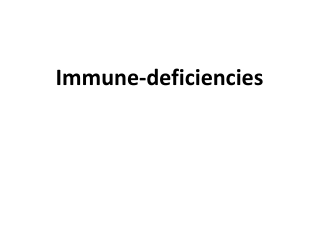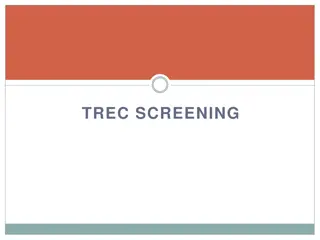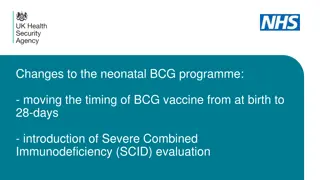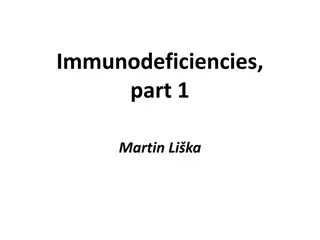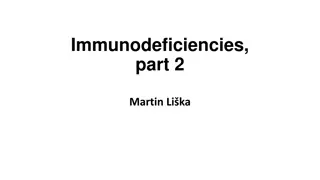Immune-deficiencies
Immune deficiencies can be classified into primary hereditary disorders based on clinical presentations, including cell-mediated, antibody-mediated, non-specific, and complement activation deficiencies. Major clinical manifestations of immune disorders range from B-cell deficiencies to phagocytic ce
2 views • 46 slides
Understanding Newborn Screening and T-Cell Receptor Excision Circles
The content discusses the importance of newborn screening, characteristics of disorders, T-cell receptor excision circles (TRECs), and the identification of severe conditions like SCID through TREC assay. It highlights the significance of early detection and treatment, emphasizing the value of high-
0 views • 7 slides
Changes to Neonatal BCG Programme: Updated Timing and SCID Evaluation
The Neonatal BCG Programme has undergone changes, including shifting the timing of the BCG vaccine administration from birth to 28 days and introducing Severe Combined Immunodeficiency (SCID) evaluation. This session aims to educate on the modifications for safe practice. The BCG immunization progra
1 views • 12 slides
Understanding Immunodeficiencies: Classification, Frequency, and Types
Basic immunological terms explain the functions of the immune system, including defense against infection, homeostasis, and immunological surveillance. Immunodeficiencies are disorders of the immune system that impair its ability to carry out these functions. They can be classified into humoral, cel
1 views • 39 slides
Understanding Primary Immunodeficiencies - Part 2
Primary immunodeficiencies are a group of disorders characterized by defects in the immune system. Severe Combined Immunodeficiency (SCID) and related conditions like JAK-3 deficiency, IL-7 R or CD45 deficiency, and Omenn syndrome are discussed in detail, highlighting the genetic basis, clinical man
0 views • 41 slides
